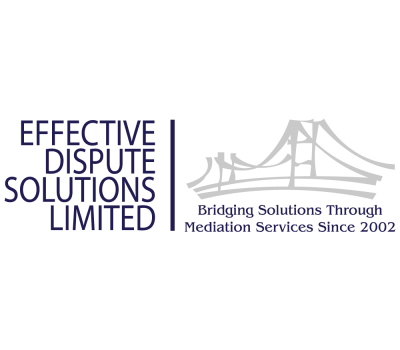Mediation Process Explained
- December 11, 2013
At Effective Dispute Solutions we get several enquiries asking how the mediation process works and therefore we thought we would provide a quick guide to advise how the mediation process does actually work.
It is important to note that each mediation services provider may well have their own approach, as will perhaps each mediator, this guide is for information purposes only and it describes how at Effective Dispute Solutions we undertake the mediation process, following years of feedback and experience of what works effectively.
Firstly it must be made clear that mediation in whatever form is voluntary and therefore all parties to a dispute need to agree to engage in the process, in the absence of which mediation cannot be undertaken, although mediation is compulsory in certain jurisdictions it is not compulsory in the UK mediation market, (frankly my own personal views, neither should it be).
Whether you have a commercial, workplace, employment, family or neighbour dispute, we adopt the following general mediation process, which will differ slightly depending upon the area of dispute.
1. We process your enquiry; obtain as much detail from you as possible to ensure mediation is in fact suitable to your circumstances and the situation.
2. Once the agreement to mediate of all parties to the dispute has been obtained, arrange a convenient time, date, location and venue to mediate the dispute.
3. Issue all the paperwork, requesting any relevant documents.
4. On the day of the mediation, have a brief pre mediation meeting with all the parties, to address any last minute questions, concerns and then use a series of meetings, joint and separate to narrow the issues between the parties and commit any agreement to writing.
For commercial mediation please note that any agreement committed to writing will usually be in the form of a Consent or Tomlin Order, if formal legal proceedings have commenced, if they have not, any agreement will act as a binding contract on the parties.
For employment mediation, this will usually also be the case as it will be for some family mediation cases. For workplace mediation and neighbour disputes any agreement formed is formed on trust and is not legally binding.
Divorce and separation cases where an agreement has been reached and deduced to writing is known as a memorandum of understanding which will then require the assistance of a solicitor to make it legally binding, enforceable.
For workplace mediation cases we see parties separately initially, whereby after initial meetings with all, we then proceed to see all parties jointly, we have found this allows people to speak more frankly and discuss any confidential issues with us more easily, as the dynamics are slightly different to commercial disputes this is a more effective way to proceed.
Finally any family mediation cases involving separation or divorce may be undertaken over a period of time in shorter sessions with a mixture of joint and separate meetings, as opposed to mediation taking place over usually just the course of one day.
Each case is different, however call us on 0800 246 1218 so that we can discuss your case with you and advise what would be the best mediation process for you to adopt and more importantly get a mediator to you as soon as possible and help you to get your dispute resolved immediately.
Mediation Process Video
Our Expert Mediators, Click On Their Name To View Their Whole CV
2002 CEDR, Academy of Experts, ADR Group Accredited Mediator. 21+years of experience. 1000+ mediation’s, 90% success rate. Mediated every type of commercial, workplace, boundary & family dispute. CIArb mediation assessor & trainer since 2007. ADR Group, Head of Mediation Training 2018 – 2020. English & Punjabi speaker.
Harvinder Singh BhurjiLLB (Hons), QDR(M), MCIArb, MCMI, CTLLSDirector, International Commercial & Workplace Mediator & Trainer

1998 CEDR & ADR Group Accredited Mediator. 25 years experience, CIArb & RICS mediation trainer & assessor. Coach since 1987. Specialisms racial discrimination, unfair & constructive dismissal, bullying. Property, family businesses, construction, professional negligence. Director, partnerships, business, joint venture, debt, employment.
Jane WalmsleyBA, LLB, LLM, MCIArb, UKCP, MBACPPsychotherapist, Coach, Commercial &
Workplace Mediator, Barrister (non-practicing)

2004 ADR Group Accredited Mediator. 19 years mediation experience. CIArb Commercial Mediation Assessor. Solicitor & Consultant at Freeths 45+ years. Specialisms, dispute resolution, professional negligence, clinical negligence, product liability, personal injury, defamation & sports law.
Paul BalenLLB (Hons), Solicitor & Consultant at Freeths LLP, Director of Trust Mediation, Commercial Mediator

Dentist, CIArb & ADR Group Accredited Mediator, 18 years mediation experience, has been involved in over 100 civil & commercial mediations.
Dr. Michael ButterworthBDS, DGDP(UK), MFDS (RCS Eng), LLM, MCIArbDentist & Commercial & Family Mediator

2005 ADR Chambers Accredited Mediator. 18 years mediation experience. Chartered Accountant & Insurance Practitioner. Expert witness. Specialisms, insurance, liquidations, professional negligence, construction & boundaries.
David S BlackBSc (Hons) CA FCII FCILA ACIArb MEWICommercial Mediator & Accountant

2017 CEDR Accredited, 6 years mediation experience. Specialisms, commercial, company, contract, property, probate, IP & professional negligence.
Tim BennettPartner & Head of Dispute Resolutionat Bray & Bray Solicitors, 2007 - 2020.
CEDR Accredited Commercial Mediator

2005 CEDR Accredited Mediator, 18 years mediation experience. Proprietor of Beaumonde Law Practice, Solicitor & employment law specialist. Specialisms company, unfair dismissal, discrimination & compromise agreements. English & Punjabi speaker.
Sundeep Singh BhatiaEmployment Solicitor & Commercial Mediator 
2011 CIArb Accredited Mediator. 12 Years Mediation Experience. 400+ mediations.
CIArb Mediation Assessor. Specialisms, construction, property, commercial, boundaries, probate & professional negligence.
Bruce BourneMRICS, MCIArb, Chartered Surveyor, Commercial Mediator 
2009 RICS Accredited Mediator. 14 years mediation experience. Fellow of the Royal Institution of Chartered Surveyors.
Expert Witness, Determination. Specialisms construction, dilapidations, property & boundary.
Richard CavadinoChartered Quantity Surveyor & Commercial Mediator 
2010 CIArb Accredited Mediator. 13 years mediation experience. Specialisms, construction, engineering, contract, employment, partnership, shareholder & professional negligence disputes.
Martin CollingwoodSolicitor, Commercial Mediator,Arbitrator, Adjudicator, Med – Arb specialist

2004 CEDR & ADR Group Accredited Mediator. 19 years mediation experience. Barrister,
conducted 110+ mediations. Specialisms, boundary, landlord & tenant, employment, contractual disputes.
David DalyBarrister & Commercial Mediator 
1996 CIArb Accredited mediator. 27 years mediation experience. Qualified as a solicitor in 1962. Specialisms. all forms of building and civil engineering projects in the UK & overseas.
Roderick O'DriscollFCIArb, MBEng, Chartered Arbitrator, Accredited Mediator,Notary Public, Qualified Solicitor of the Supreme Court

1998 Academy of Experts Accredited Mediator. Qualified Dispute Resolver. 25 years mediation experience. CIArb commercial mediation course tutor & assessor. Issued well over 400 awards, decisions in civil & commercial disputes. Specialisms all commercial matters.
Ike EhiribeLLB (Hons) lagos, B.L, FCIArb, FSIArb, QDR, Barrister, Chartered Arbitrator, Adjudicator, Visiting Professor & Commercial Mediator

2003 CEDR Accredited Mediator. 20 years mediation experience. Manchester University lecturer, visiting lecturer & professor at several overseas universities. CIArb commercial mediation course tutor & assessor. Specialisms construction & engineering.
Dr. Peter FennBSc PhD FRICS FCIArb, Academic, Quantity Surveyor,Adjudicator, Arbitrator & Commercial Mediator

1996 CEDR Accredited Mediator. 27 years mediation experience. CIArb commercial mediation course tutor & assessor. Specialisms, construction, contracts, corporate sale, landlord & tenant, employment, personal injury & professional negligence.
Grant GoodladBarrister & Commercial Mediator 
2002 CEDR Accredited Mediator. 21 years mediation experience. Consensio workplace mediation course trainer. Specialisms, business, charities, contract, education, workplace, landlord & tenant, media, partnership, public sector, wills & probate.
Carolyn GrahamCommercial & Workplace Mediator 
ADR Group Accredited Mediator. 17 years mediation experience. 19 years as a civil litigator. Specialisms, personal injury, clinical & professional negligence, partnership, employment, landlord & tenant, commercial contract, boundary & probate disputes.
Phil HeskethSolicitor till 2008, Commercial Mediator 
1997 ADR Group Accredited Mediator. 26 years mediation experience. Head of insurance litigation department, specialising in personal injury & insurance litigation. Specialisms, personal injury, professional negligence, partnership, landlord & tenant.
Paul Hughes Solicitor & Commercial Mediator 
2003 ADR Chambers Accredited Mediator. 20 years mediation experience. Specialisms, contract, debt recovery, consumer, property, repossessions, & personal injury.
Maz Adam IqbalLLB (Hons), PGDip, MCIArb, CeMap,Barrister, Mortgage Advisor & Commercial Mediator

2007 ADR Group Accredited Mediator.16 years mediation experience. Specialisms, property, insurance, construction, professional negligence, boundaries, landlord & tenant & engineering.
Russell JonesSolicitor & Commercial Mediator 
2008 Accredited Mediator. 15 years mediation experience. Specialisms, commercial, company, contract, employment, insolvency & personal injury law.
Joe Al KhayatBarrister & Commercial Mediator 
2003 CEDR Accredited Mediator. 2004 ADR Group Accredited Mediator. 20 years mediation experience. Various directorships. Specialisms, building, construction, family business, partnership, commercial contracts, landlord & tenant & professional negligence.
Robin LeaBSc Mech Engineering, Commercial Mediator 
1999 CEDR Accredited Mediator. 90% success rate. 24 years mediation experience. Specialisms, contract, employment, boundary, building & construction.
Edward LegardBarrister, Employment Judge & Commercial Mediator 
2007 ADR Group Accredited Mediator. 16 years mediation experience. Specialisms, construction, property, commercial landlord & tenant, boundary, shared ownership, occupation & Inheritance Act disputes.
Michael McCourtLLB MSc FCIArb, Deputy DistrictJudge, Commercial & Family Mediator

2001 ADR Group Accredited Mediator. 22 years mediation experience. Specialisms, building, construction, civil engineering, professional negligence, boundary & contracts.
Paul NewmanBarrister, Adjudicator & Commercial Mediator 
2002 ADR Group Accredited Mediator. 21 years mediation experience. Qualified as a Solicitor in 1982. Family Mediator (MIAMs) trained also. Specialisms, family, probate, contract, debt recovery, & workplace disputes.
Frances PlaceCommercial & Family Mediator 
1997 ADR Group Accredited Mediator. 26 years mediation experience. Solicitor since 1991, for many years having obtained a Ist Class Honours Law Degree from Liverpool University. Specialisms, commercial, company, contract, employment, insolvency & personal injury law.
John RocheLLB (Hons) Solcitor & Commercial Mediator 
2007 ADR Group Accredited Mediator. 16 years mediation experience. Family & workplace mediation trained. Specialisms, probate, landlord / tenant, boundary, partnership, building, contract, insurance, professional negligence, family & workplace.
Julian RendallLLM, MCIArb, FMCA, MIAM's PPCSupervisor, Commercial, Workplace & Family Mediator

2002 CEDR Accredited Mediator. 21 years mediation experience. Specialisms, business, company, contract, debt recovery, director & partnerships.
Jeffrey C RosenthalBSc (Econ) FCCA FCIArb MAE, Accountant,Arbitrator, Expert Witness & Commercial Mediator

2008 ADR Group Accredited Mediator. 15 years mediation experience. Was a solicitor for 9 years, before being called to the Bar. Specialisms, litigation, trusts of land, property, landlord tenant & unlawful eviction.
Tom RussellBarrister & Commercial Mediator 
2008 ADR Chambers Accredited Mediator. 15 years mediation experience. Director at Davisons Solicitors & Head of the Dispute Resolution Team. Specialisms, construction, probate, family, employment, contract & professional negligence.
Umran SadiqSolicitor & Commercial Mediator 
2007 CIArb Accredited Mediator. 16 years mediation experience. Senior Counsel, Arbitrator, Conciliator, Med Arb & Expert Determination specialist. Specialisms, building, construction, civil engineering, rail, marine, energy, site remediation, professional negligence, contract & partnerships.
Ken SalmonMCIArb, Consultant Solicitor & Commercial Mediator 
2005 CEDR Accredited Mediator. 18 years mediation experience. Family Mediator also.
Vice President of the Law Society of England & Wales. English, Punjabi & Urdu speaker. Specialisms, property, boundary, directors, probate & contract.
Lubna ShujaSolicitor, Commercial & Family Mediator 
2003 ADR Group Accredited Mediator. 20 years mediation experience. 70+ mediations.
Specialisms, workplace, insurance, professional negligence, contract, property & private equity.
Louisa TaylorSolicitor & Commercial Mediator 
2002 CEDR Accredited Mediator. 21 years mediation experience. CIArb commercial mediation assessor. Issued over 175 arbitration awards. Co-author of ‘The Arbitration Act 1996 – A Commentary’. Principal Lecturer, University of the West of England. Specialisms, property, commercial & construction.
Jonathan TecksMA, FCIArb, DiplCArb, Barrister,Arbitrator, Academic & Commercial Mediator

2004 CEDR Accredited Mediator. 19 years mediation experience. Specialisms, construction, property, commercial, IT, market/industry analysis & business cases.
Dr Paul WheatlyCommercial Mediator 
2003 ADR Chambers Accredited Mediator. 20 years experience. Family & workplace mediation trained. Specialisms, construction, engineering, PFI/Projects, professional negligence, neighbour, litigation, family & workplace.
Peter WebsterSolicitor, Commercial, Workplace & Family Mediator 
2019 Accredited Mediator. 4 Years Mediation Experience. Managing Partner Gotelee LLP. Employment Solicitor, specialisms, workplace,
employment & commercial litigation.
Andrew WestSolicitor, Commercial & Workplace Mediator 
Previous
Next
2002 CEDR, Academy of Experts, ADR Group Accredited Mediator. 20+years of experience. 1000+ mediation’s, 90% success rate. Mediated every type of commercial, workplace, boundary & family dispute. CIArb mediation assessor & trainer since 2007. ADR Group, Head of Mediation Training 2018 – 2020. English & Punjabi speaker.
Harvinder Singh BhurjiLLB (Hons), QDR(M), MCIArb, MCMI, CTLLSDirector, International Commercial & Workplace Mediator & Trainer

1998 CEDR & ADR Group Accredited Mediator. 24 years experience, CIArb & RICS mediation trainer & assessor. Coach since 1987. Specialisms racial discrimination, unfair & constructive dismissal, bullying. Property, family businesses, construction, professional negligence. Director, partnerships, business, joint venture, debt, employment.
Jane WalmsleyBA, LLB, LLM, MCIArb, UKCP, MBACP,Psychotherapist, Coach, Commercial & Workplace Mediator, Barrister (non-practicing)

2004 ADR Group Accredited Mediator. 18 years mediation experience. CIArb Commercial Mediation Assessor. Solicitor & Consultant at Freeths 45+ years. Specialisms, dispute resolution, professional negligence, clinical negligence, product liability, personal injury, defamation & sports law.
Paul BalenLLB (Hons), Solicitor & Consultant at Freeths LLP, Director of Trust Mediation, Commercial Mediator

2005 ADR Chambers Accredited Mediator. 16 years mediation experience. Chartered Accountant & Insurance Practitioner. Expert witness. Specialisms, insurance, liquidations, professional negligence, construction & boundaries.
David S BlackBSc (Hons) CA FCII FCILA ACIArb MEWI, Commercial Mediator & Accountant

1996 CEDR Accredited Mediator. 26 years mediation experience. CIArb commercial mediation course tutor & assessor. Specialisms, construction, contracts, corporate sale, landlord & tenant, employment, personal injury & professional negligence.
Grant GoodladBarrister & Commercial Mediator 
ADR Group Accredited Mediator. 16 years mediation experience. 19 years as a civil litigator. Specialisms, personal injury, clinical & professional negligence, partnership, employment, landlord & tenant, commercial contract, boundary & probate disputes.
Phil HeskethSolicitor till 2008, Commercial Mediator 
1997 ADR Group Accredited Mediator. 25 years mediation experience. Head of insurance litigation department, specialising in personal injury & insurance litigation. Specialisms, personal injury, professional negligence, partnership, landlord & tenant.
Paul Hughes Solicitor & Commercial Mediator 
2001 ADR Group Accredited Mediator. 21 years mediation experience. Specialisms, building, construction, civil engineering, professional negligence, boundary & contracts.
Paul NewmanBarrister, Adjudicator & Commercial Mediator 
2007 CIArb Accredited Mediator. 15 years mediation experience. Senior Counsel, Arbitrator, Conciliator, Med Arb & Expert Determination specialist. Specialisms, building, construction, civil engineering, rail, marine, energy, site remediation, professional negligence, contract & partnerships.
Ken SalmonMCIArb, Consultant Solicitor & Commercial Mediator 
2005 CEDR Accredited Mediator. 17 years mediation experience. Family Mediator also.
Vice President of the Law Society of England & Wales. English, Punjabi & Urdu speaker. Specialisms, property, boundary, directors, probate & contract.
Lubna ShujaSolicitor, Commercial & Family Mediator 
2003 ADR Group Accredited Mediator. 19 years mediation experience. 70+ mediations.
Specialisms, workplace, insurance, professional negligence, contract, property & private equity.
Louisa TaylorSolicitor & Commercial Mediator 
2002 CEDR Accredited Mediator. 20 years mediation experience. CIArb commercial mediation assessor. Issued over 175 arbitration awards. Co-author of ‘The Arbitration Act 1996 – A Commentary’. Principal Lecturer, University of the West of England. Specialisms, property, commercial & construction.
Jonathan TecksMA, FCIArb, DiplCArb, Barrister, Arbitrator,Academic & Commercial Mediator






